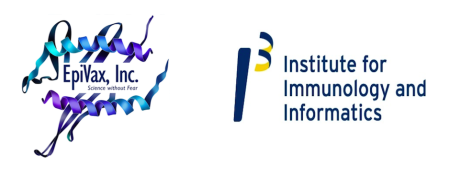Even though Ebola has faded into the background, newly emerging infectious disease remain a challenge for the future. Completely new vaccines to prevent infectious diseases, and ancient ones, will be the focus of this year’s edition of the Vaccine Renaissance. For example, Dr. Steven Hoffman of Sanaria will describe clinical trials with his irradiated Malaria sporozoite vaccine. Other speakers include Manon Cox of Protein Sciences, who makes an egg- free flu vaccine, and Mark Poznansky of Harvard Medical School who will describe Q-Vaxcelerate, a consortium approach to making a vaccine for Q fever. The event will take place at Hotel Providence and is coordinated by the University of Rhode Island, on November 4-6, 2015.
Now in its 9th year, the Vaccine Renaissance conference celebrates the important role of vaccines in public health. Dr. Nicole Alexander Scott will open the conference by addressing universal HPV vaccination efforts in Rhode Island, while later in the day, international experts will describe their efforts to combat Avian Influenza and Dengue Fever in Japan and Thailand. The conference also provides a forum for researchers to describe new methods to improve vaccine safety and efficacy: Off target effects of vaccines including Narcolepsy will be discussed on Day 2. Young vaccine developers will present their work in poster format: the three best posters will be awarded prizes during the closing ceremony on Thursday November 5th. Researchers are also invited to participate in a computational vaccinology workshop, organized by iCubed and EpiVax that will take place on the last day of the conference.
- Wednesday, November 4th (Hotel Providence) sessions include: Malaria, Dengue, and Influenza.
- Thursday, November 5th (Hotel Providence) sessions include: Animal Health, New Vaccines and Immunology of Vaccines.
- Friday, November 6th (University of Rhode Island, Providence Campus) the Institute for Immunology and Informatics together with EpiVax will host a hands-on immunoinformatics toolkit training.For a full list of topics and speakers click the following linkhttps://www.immunome.org/conferences/9th-annual-renaissance-conference/
The Institute for Imunology and Informatics (iCubed) is a vaccine and immunology research center located at the University of Rhode Island’s Providence campus. iCubed’s mission is to improve human and animal health by applying the power of genomics and informatics to the design of better vaccines, diagnostics and therapeutics. We apply cutting-edge bioinformatics tools to accelerate the development of treatments and cures for a number of diseases such as hepatitis C, Lyme disease and Dengue fever. The Institute aims to rapidly make these tools available to the global research community for the development of vaccines for other infectious diseases. The iCubed center educates and trains the next generation of vaccine and immunology researchers.
Contact:
Jennifer Critcher
Institute for Immunology and Informatics
University of Rhode Island
Phone: 401 277-5310
Email: jcritcher.uri@gmail.com
Steven Vessella
EpiVax, Inc.
Phone: 401 272-2123
Email: svessella@epivax.com

